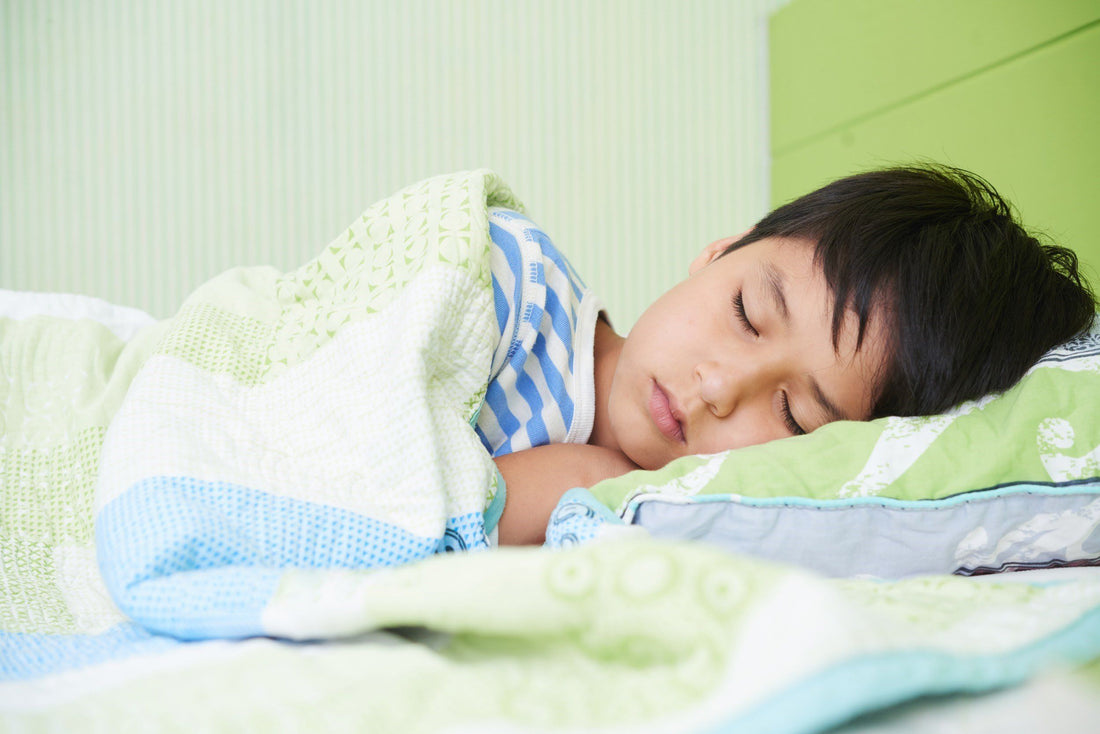Lack of sleep can affect many aspects of a child's life, from how well they pay attention to how effectively they cope with anxiety and stress. Yet, adequate sleep is often one of the first things sacrificed when trying to keep up with the demands of modern life. An Australian study found that kids with attention challenges who were given behavioral sleep interventions showed an improvement in their symptoms, and researchers have found that well-rested children perform better at school, which is why adequate sleep is one of the five pillars in the Brillia program.
If your child or teen struggles with sleep, explore these eight sleep tips that can help them get a good night’s rest.
1. Avoid Caffeine and Sugar
When a child eats sugary foods or consumes caffeinated beverages, their body experiences an instant spike in glucose levels and a burst of adrenaline. This is bad news for sleep. Encourage your child to avoid caffeine and sugar, especially before bedtime, but throughout the day as well so they can enjoy better sleep at night and less anxiety during the day.
2. Limit Screen Time
Researchers have found that the blue light emitted by tablets and smartphones interferes with the release of melatonin, a hormone the body produces to signal it’s time for bed. Experts recommend that both kids and adults turn off screens one to two hours before bed and limit screen use during the day. Also, remember to remove tablets and phones from your child’s room, so he’s not tempted to look at them at night.
3. Keep a Regular Sleep Schedule
Try to keep your child’s bedtimes and wake-up times as consistent as possible. This helps to regularize your child’s body clock. It’s also a good idea to keep them on a regular schedule on weekends and holidays, so Monday isn’t always a struggle to get back on track. Most children don’t give up their daytime naps until the age of 5 at the latest.
4. Have a Calming Pre-Bedtime Routine
Establishing a relaxing bedtime routine can help prepare your child for a restful night of sleep. Consider reading stories, listening to soothing music, or even singing a song together before sending them off to slumber. Allow your child to offer input, and make their bedtime ritual something to look forward to every night.
5. Make Their Bedroom a Sleep Sanctuary
Research shows that light pollution (including light from digital clocks or night lights) can disrupt hormone regulation, which affects sleep, as well as immune system function. Make sure there are no bright lights in the room and block light pouring in from outside with the help of blackout curtains. A white noise machine can ensure that sounds won’t interrupt their sleep. Lastly, keep things cool but not cold. A child who feels hot or cold is more likely to wake up in the middle of the night.
6. Get Them Moving During the Day
If you’ve ever thought that your child seems to sleep better after an active day at the park or in sports, you’re not mistaken. Regular exercise is not only good for physical health, but it can also provide an outlet for frustrations and release mood-enhancing endorphins, which can help ease your child into a deeper sleep. Yoga can also be a relaxing pre-bedtime activity.
7. Eat Dinner at the Right Time
Make sure your child has a balanced and nutritious evening meal at a reasonable hour. Feeling hungry or too full before going to bed can interfere with sleep. If your child really wants a snack before bed, choose wisely. Foods that pair protein with carbs, like toast with peanut butter, supply amino acids such as tryptophan, the precursor to chemicals that make you feel sleepy.
8. Address Nighttime Fears
If your child asks you to check for monsters under the bed, resist the urge to dismiss their fears as it may make matters worse. The National Sleep Foundation suggests helping younger children gain control over their fear by creating fun signs to hang in the bedroom with messages like, “No Monsters Allowed,” or labeling a spray water bottle as “Monster Spray.” For older children whose fears may have more to do with ruminating thoughts or anxiety over tomorrow’s test, talk them through fears and offer your support before encouraging them to practice mindfulness techniques such as deep breathing or meditation.
If the tips above don’t work for your child, consider seeing a sleep specialist to rule out a sleep disorder. The sooner you address issues with your child’s sleep, the sooner they’ll be able to get a good night’s rest – and so will you.
Erica Garza is an author and essayist from Los Angeles. She holds an MFA from Columbia University and a certificate in Narrative Therapy. Her writing has appeared in TIME, Health, Glamour, Good Housekeeping, Women's Health, and VICE.References:


 Improve focus and clarity.
Improve focus and clarity.


